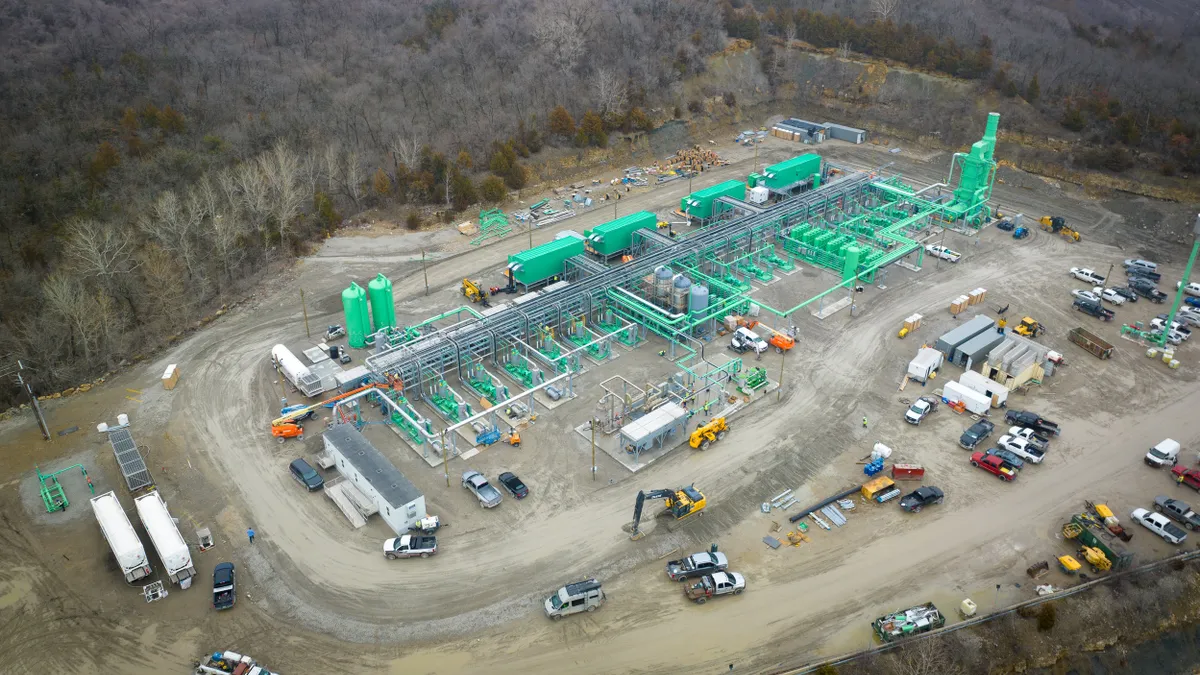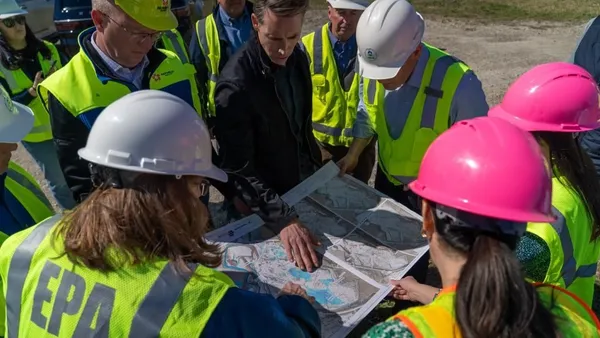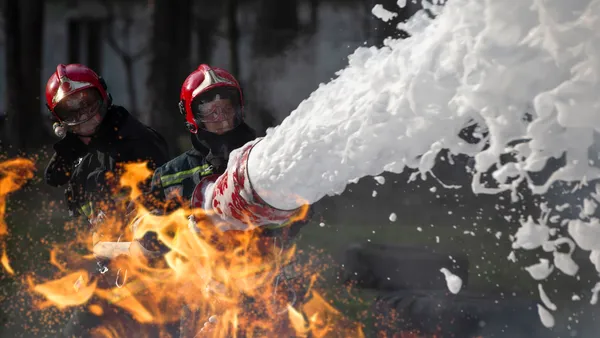April was a busy month for landfill operator and RNG partnerships, ending with an announcement from BP’s Archaea Energy of a new facility at a WM landfill.
Archaea has completed construction of a landfill-gas-to-RNG facility at the site in Shawnee, Kansas, the developer announced Tuesday. The facility, fully owned by Archaea, can generate enough gas to heat about 38,000 homes annually, according to the company.
The plant is the largest iteration yet of the company’s Archaea Modular Design plants to come online. Its first such facility, in Medora, Indiana, could process up to 3,200 standard cubic feet of landfill gas per minute. The Shawnee facility can process three times as much: 9,600 scfm. Archaea says it can also build a medium-sized version of the AMD plants that can process up to 6,400 scfm.
Archaea says its AMD plants — built on skids with interchangeable parts — can be built faster than industry standards.
“This represents another significant milestone for Archaea. A plant of this size can have a positive impact in capturing emissions from a landfill and providing our customers with lower carbon fuel,” Archaea CEO Starlee Sykes said in a statement.
Read on for more of the latest news about RNG projects announced this month.
Village Farms and Terreva Renewables launch facility in British Columbia
Terreva Renewables and Canadian firm Village Farms announced they are producing RNG at a landfill facility in Delta, British Columbia, on April 3. The project is described as producing “nearly 3% of British Columbia’s targeted RNG volumes” by 2030.
The deal enhances a previous agreement Village Farms had in place with the city of Vancouver to collect gas from the landfill. Previously, Village Farms operated a co-generation facility that leveraged the landfill gas to generate electricity and provide heat to the company's greenhouse in Delta. But in 2020, Vancouver agreed to let Village Farms upgrade that facility to produce RNG instead. Village Farms brought in Mas Energy — a company acquired by CIM Group to form Terreva in 2022 — to design, build, own and operate the facility.
The private partners have a 20-year deal with Vancouver and an optional five-year extension that kicked in with the commencement of the facility's operation. Terreva will market and sell the RNG, and Village Farms receives a royalty through the deal. In addition, the facility will produce carbon dioxide that Village Farms plans to use in its agricultural facilities.
Dairy digester begins operations in South Dakota
An anaerobic digestion project that refines RNG from dairy farm manure began operations this month and was celebrated at a ceremony with South Dakota state officials. The project is one of two that’s part of a $150 million construction plan financed by energy provider UGI. The facilities are being developed by MBL Bioenergy, a joint venture between UGI Energy Services, Sevana Bioenergy and a subsidiary of California Bioenergy.
The Brookings dairy project pulls feedstock from three farms near Estelline, South Dakota, and is expected to generate roughly 300 million cubic feet of RNG annually. The second project, dubbed Lakeside, will pull feedstock from two farms and is expected to generate roughly 225 million cubic feet of RNG annually. Both plan to inject the upgraded biogas into the local distribution grid, run by NorthWestern Energy.
UGI, through the MBL partnership, commissioned its first dairy RNG project in 2022. At the time the facility was announced, it was scheduled to open in 2024.
Ameresco to build biogas cogeneration facility
Ameresco is building a biogas cogeneration plant for the Sacramento Area Sewer District's EchoWater Resource Recovery Facility in Elk Grove, California, the project partners announced. The plant will produce electricity and heat in a 13.4-megawatt facility.
Construction of the new facility is scheduled to finish by July 2026. The $140 million contract adds to Massachusetts-based Ameresco's portfolio, which also includes landfill gas facilities. In 2023, the company owned and operated five biogas-to-RNG facilities and 22 biogas facilities that do not produce RNG, according to its annual report.
Partnerships make progress
On April 10, Chevron and Brightmark announced they opened a dairy manure anaerobic digestion facility in Eloy, Arizona. The project is the partnership’s first in the region, but it adds to a network of more than 20 facilities predominantly centered around the Midwest, Agriculture Dive reported.
Meanwhile, Vanguard Renewables and TotalEnergies announced a partnership last week to develop at least 10 RNG facilities, with the possibility to expand their agreement to develop dozens more. The partners expect to begin developing the initial group of facilities over the next year and estimate they will produce about 0.8 terawatt-hours of energy annually at full buildout.















